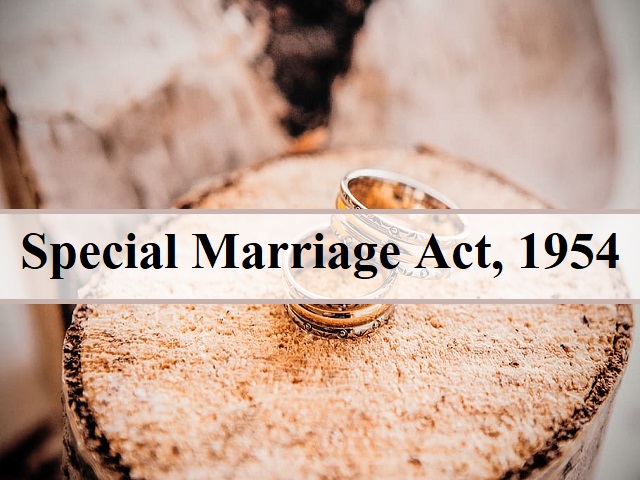INTRODUCTION
Welcome to the official blog of the Law Offices of Kr. Vivek Tanwar Advocate and Associates, where we are dedicated to providing litigation support services for matters related to marriage. In today’s blog post, we aim to shed light on the prevailing issues surrounding marriage, the legal framework in place for their protection, and the steps we can take as a society to combat these acts. Join us as we explore this critical subject and empower you with the knowledge to protect your rights and safety.
WHAT IS SPECIAL MARRIAGE ACT, 1954?
The Special Marriage Act is an Indian legislation that provides a legal framework for interfaith or inter-caste marriages. It was enacted in 1954 with the goal of facilitating marriages between individuals belonging to different religions, castes, or communities. The act allows couples to marry without regard to their diverse backgrounds and ensures that their union is legally recognized. The Special Marriage Act aims to promote the principles of secularism, social integration, and individual freedom by enabling individuals to marry outside their religion or caste. It provides a legal framework that allows couples to overcome societal barriers and ensures the recognition and protection of their marriage under the law.
GROUNDS FOR JUDICIAL SEPARATION
Under the Special Marriage Act, 1954, which applies to inter-religious and inter-caste marriages in India, judicial separation is a legal provision that allows married couples to live separately without formally terminating their marriage. Grounds for judicial separation are mentioned in Section 27 of the Act.
The grounds for judicial separation under the Special Marriage Act are as follows:
- Adultery: If either spouse engages in voluntary sexual intercourse with another person outside of the marriage, it can be a ground for judicial separation.
- Cruelty: If either spouse subjects the other to physical or mental cruelty, making it impossible to live together, it can be a ground for judicial separation.
- Desertion: If either spouse abandons the other without reasonable cause for a continuous period of not less than two years, it can be a ground for judicial separation.
- Conversion: If either spouse converts to another religion, it can be a ground for judicial separation if the other spouse objects to such conversion.
- Mental disorder: If either spouse suffers from a mental disorder or mental illness that makes it difficult to live together, it can be a ground for judicial separation.
- Venereal disease: If either spouse suffers from a venereal disease in a communicable form, which poses a risk of transmitting the disease to the other spouse, it can be a ground for judicial separation.
CONCLUSION
It also states that judicial separation does not dissolve the marriage but allows the couple to live separately. If the spouses decide to reconcile in the future, they can resume cohabitation. However, if they wish to end the marriage completely, they would need to file for divorce under the provisions of the Special Marriage Act.
We are a law firm in the name and style of Law Offices of Kr. Vivek Tanwar Advocate and Associates at Gurugram and Rewari. We are providing litigation support services for matters related to Special Marriage Act,1954. We have a website on which we publish blogs informing the litigants about the said laws. Draft a blog which can be published on our website…..
Written by: Adv. Priyanka Goel (D/945/2020) .

